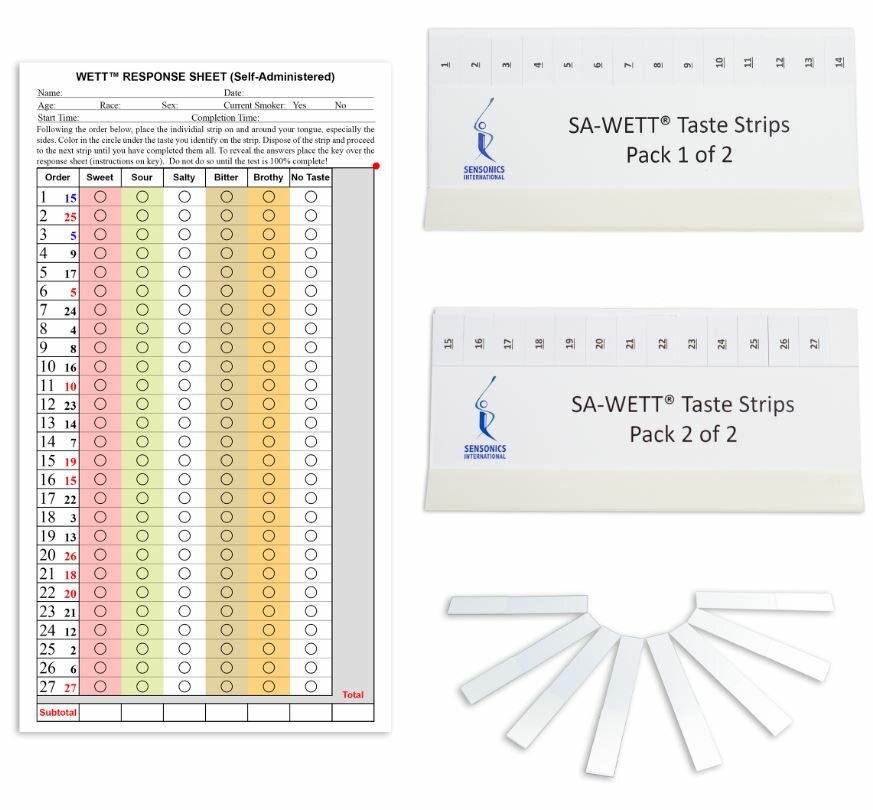Please specify the quantity of product(s).





Self-Administered Waterless Empirical Taste Test (WETT)
The Self-Adimistered Waterless Empirical Taste Test ™ (WETT®) is an easy and inexpensive method for quantitatively evaluating taste function
| Item | Product | Price | QTY |
|---|---|---|---|
| 32016 | Self-Administered Waterless Empirical Taste Test | $41.00 | |
| 32016B | Self-Administered Waterless Empirical Taste Test-Brief | $35.00 |
The Self-Administered Waterless Empirical Sense of Taste Test™ (WETT)
Self-administration WETT® sense of taste test. No water stimuli or rinses are required. Each individually packaged kit comes with response forms and instructions for self-administration. Ideal for a complete assessment of taste function. Can be self-administered in 15 minutes.
Individually packaged kit with enclosed response forms. One scoring key included per order. Additional keys may be purchased.
Why test for sense of taste of and sense of smell?
For All the Right Reasons!
- Quality of Life
- Personal Safety
- Health
- Nutrition
- Occupational Safety
- Early Intervention
The senses of smell and taste monitor the intake into the body of all nutrients and airborne chemicals required for life. These senses provide a warning for toxic fumes, smoke, leaking natural gas, spoiled food, and dangerous environments. Importantly, they determine the flavor and palatability of foods and beverages, and provide a vast array of aesthetic delights.
Unlike vision and hearing, smell and taste testing is not routinely performed by physicians, the government, the school system, or employers. This is in spite of the fact that decreased chemosensation, particularly smell loss, can be very debilitating, placing an individual, as well as coworkers, at risk in many occupations (e.g., chemical manufacturing, nuclear plant maintenance, fire fighting, police work, plumbing, aviation, nautical engineering
and maintenance, and many military and industrial situations). Those who work in hazardous environments or in situations where smell warning is essential should be evaluated regularly. Such testing can be employed to transfer people with dysfunction to jobs in which decreased smell function has no major safety consequences. Smell loss can be an early sign of some diseases. Sensonics’ tests can be used to detect smell loss but cannot be used alone to diagnose disease.
These types of sense of taste kits are often used by food manufacturers, restaurants, research organizations, and culinary professionals to gather valuable insights into consumer preferences, product quality, and market trends. They provide a structured and controlled way to compare and contrast different options, helping businesses make informed decisions and improve their offerings.
